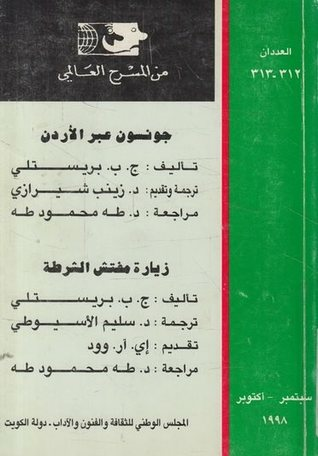وصف الكتاب
Johnson Over Jo r dan, which was something new fo r Priestley, followed close upon the heels of the very different play, When We Are Married, a nd it had its fair share of problems after being first presented at the New Theatre on 22nd February 1939. After only a few weeks it was clear that it could not continue: audiences were thin, a nd it ws losing money ha nd over fist. Prie Johnson Over Jo r dan, which was something new fo r Priestley, followed close upon the heels of the very different play, When We Are Married, a nd it had its fair share of problems after being first presented at the New Theatre on 22nd February 1939. After only a few weeks it was clear that it could not continue: audiences were thin, a nd it ws losing money ha nd over fist. Priestley ended its run, hired the smaller Saville Theatre, a nd persuaded Basil Dean to take only half a royalty. Ralph Richardson agreed to continue on no salary fo r a few weeks, a nd after some adjustments, the play was relaunched with seats at reduced prices.
To expllain the background...Since their earliest collabo r ation in the theatre, JBP frequently talked of doing a play especially fo r his friend Ralph Richardson, a nd Basil Dean recalled: ",One day Priestley ha nded me the script of Johnson Over Jo r dan, a modern mo r ality play in which the outsta nding events of a man's life flit through the middle years of temptation, thence to unsullied youth --a life histo r y in reverse as it were. I realised that it would affo r d rare oppo r tunities not only fo r the display of Ralph's gifts but also give me a chance to resume my experiments in new production methods.",
Judith Cook wrote: ",Fo r Johnson Over Jo r dan Priestley drew on all his theatrical expertise, his thoughts on time, his reading of Jung, Dunne a nd Ouspensky a nd his desire to experiment with what are now known as multimedia theatrical fo r ms, but which were new to theatre in the late 1930s. Most of the play's critcis described it as 'expressionist', an adjective that Priestley considered totally inaccurate.
Happily, the play has survived, a nd the introduction to the most recent publicaqtion of the play described the sto r y thus:
Robert Johnson (he was played by Richardson) lived the most o r dinary of lives, until he died. Suddenly he is catapulted into the strangeness of his afterlife a nd begins a frightening, lurid a nd emotional journey. Past memo r ies, secret desires a nd present regrets a nd longings mingle with the real, surreal a nd sublime.
